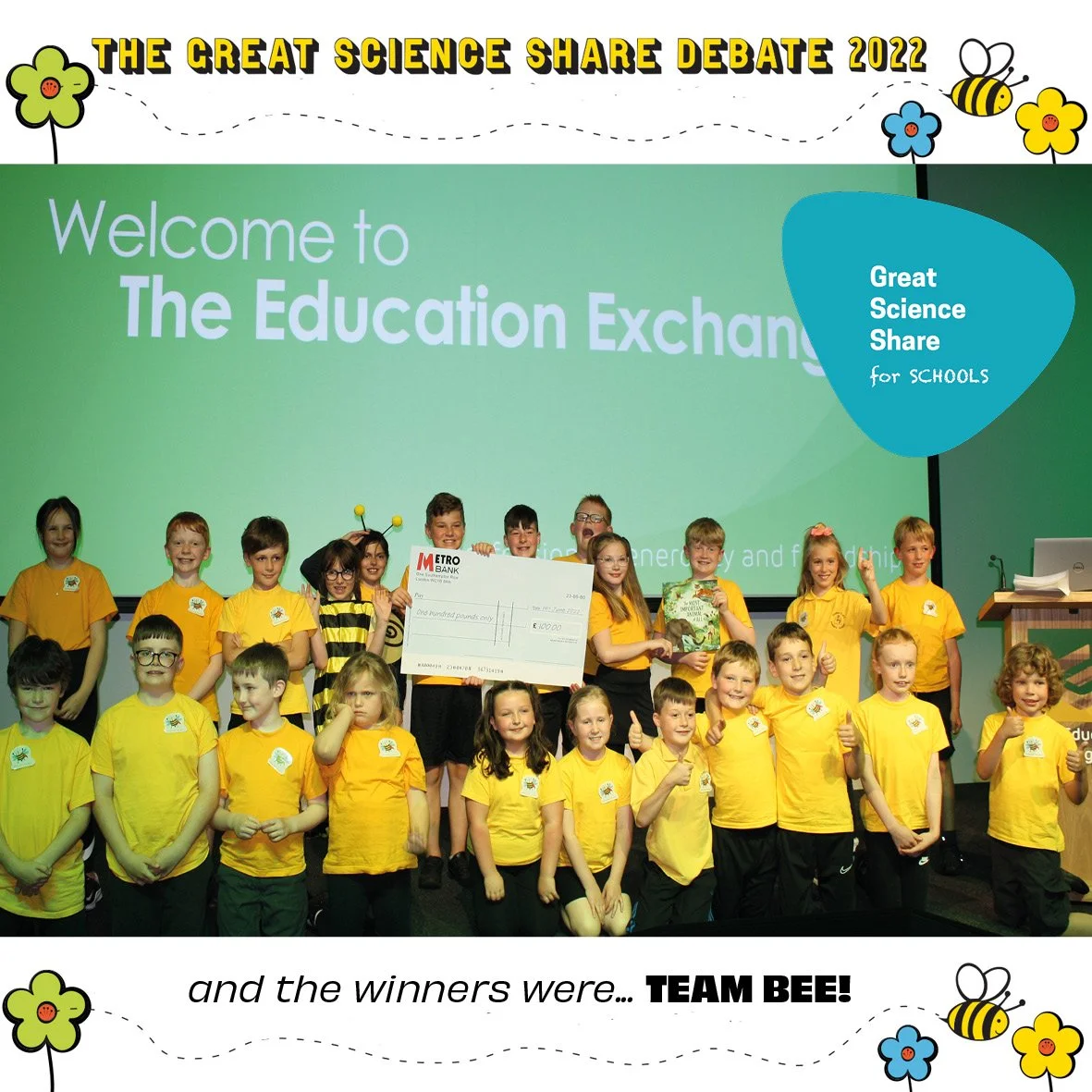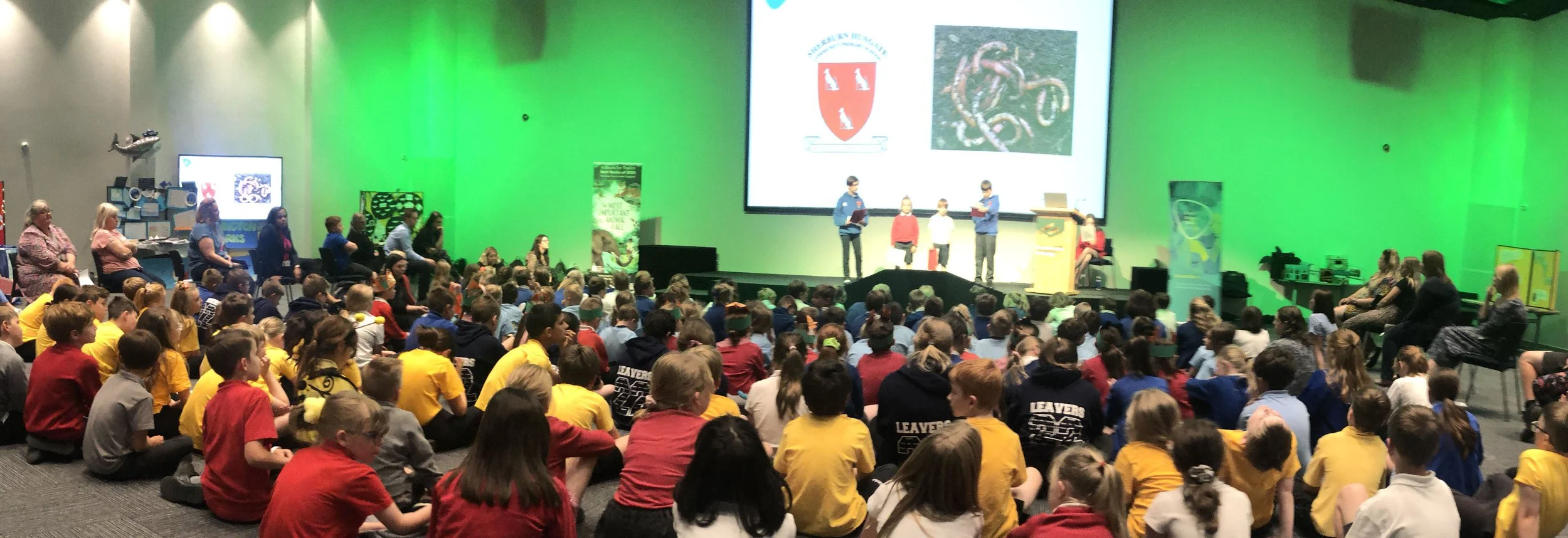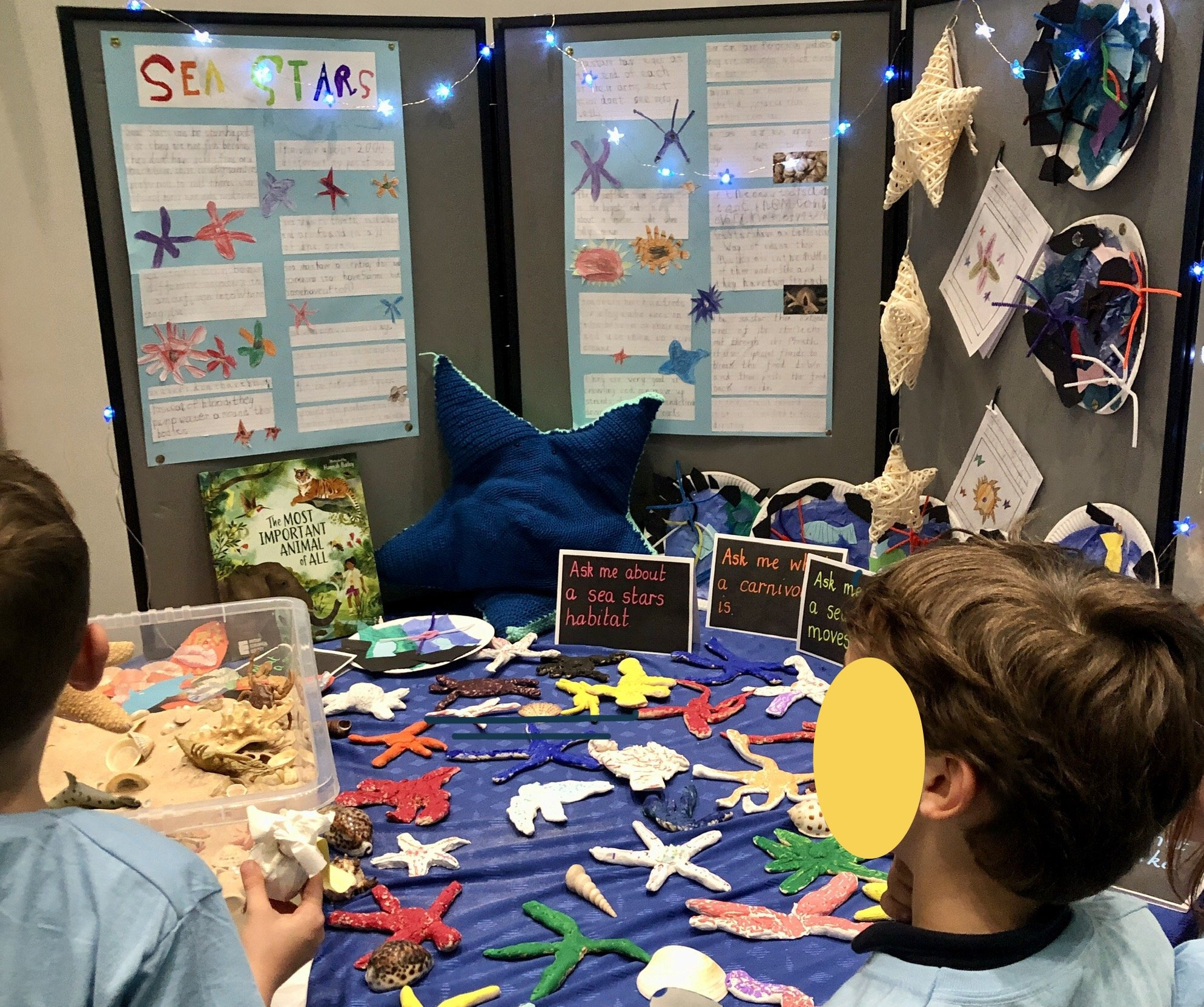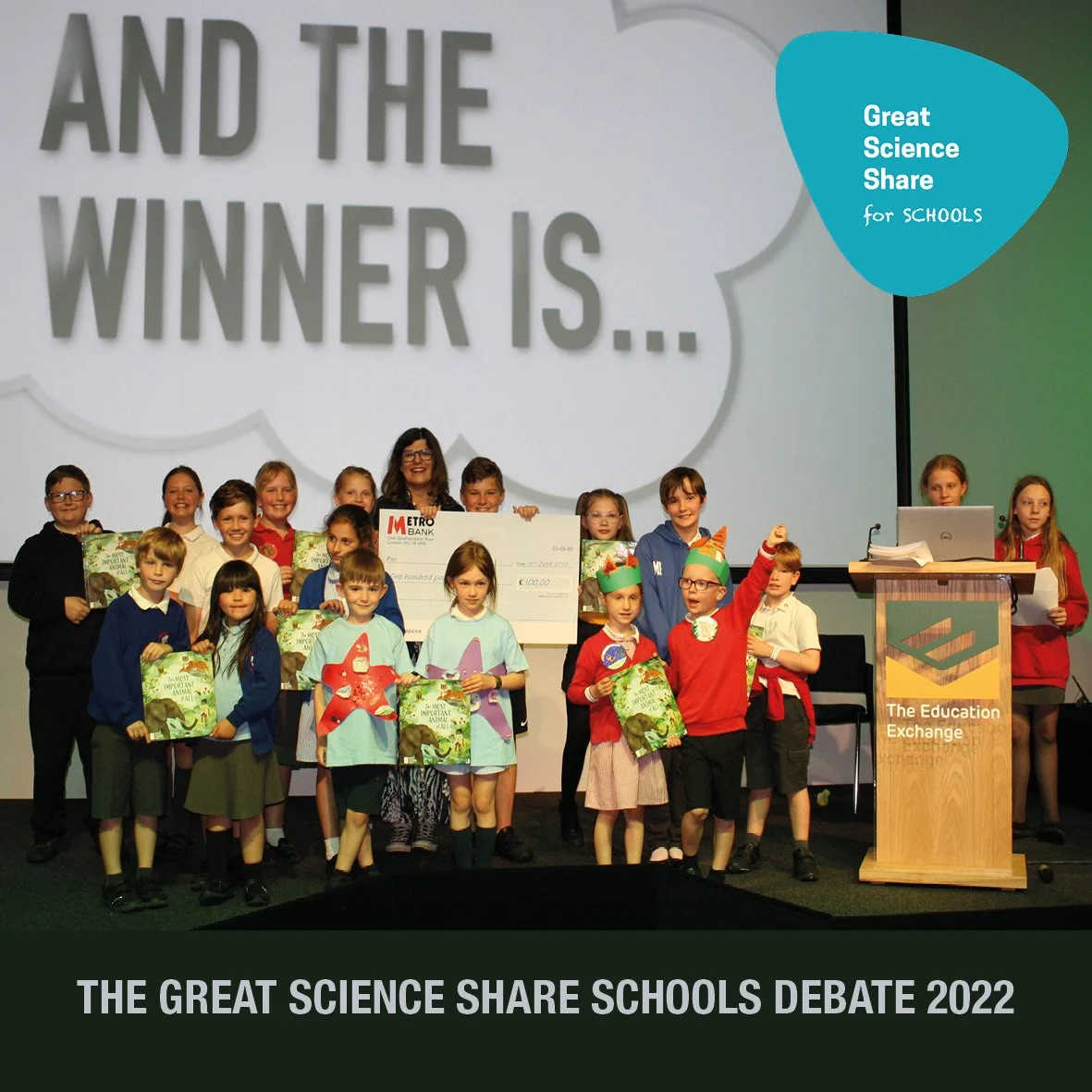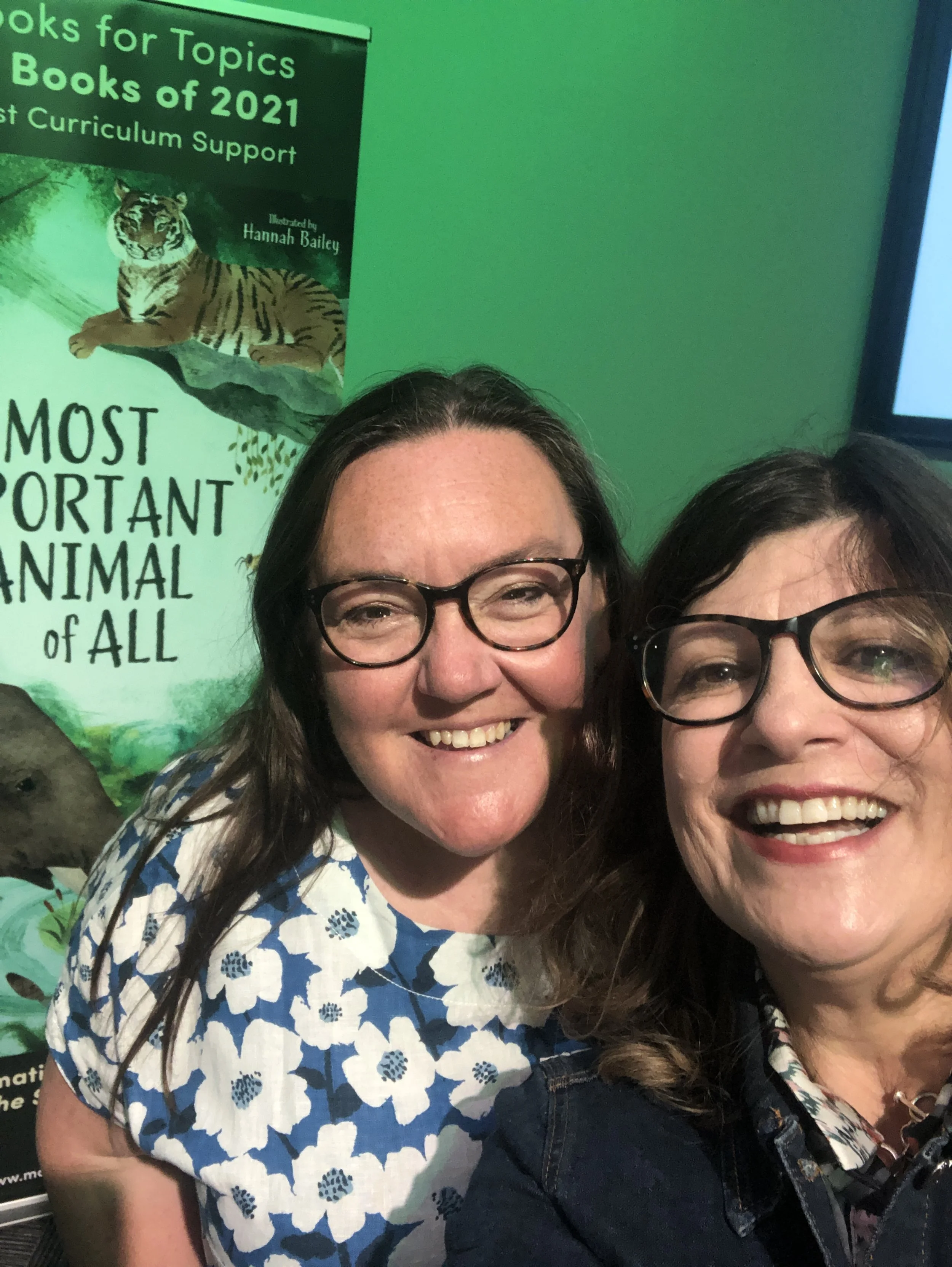The Great Science Share Debate 2022
BEES WIN AGAIN!
〰️
BEES WIN AGAIN! 〰️
The debate winners from Saxton Primary School
Bees win again as STEM experts join eight primary schools in North Yorkshire for a ground-breaking debate on what really is the most important animal of all.
“A truly remarkable thing happened on 14th June 2022 - over 160 children from 8 local primaries joined 300,000+ from all over the UK and the wider world to share their science with others. Their passion, knowledge and expertise in their animal and its vital importance for our world was transformational. They flipped the narrative of learning - they were the teachers, leaders and educators and I know the future is bright with these young people in charge.“ - Project Leader and Primary Science Consultant, Bryony Turford
The Most Important Animal of All was inspired by the 2008 Earthwatch debate at the Royal Geographical Society, after which the audience voted and it was decided that bees were the most invaluable species on the planet. On 14th June 2022 eight Yorkshire primary schools teamed up with eight academics and other local experts to recreate that debate based on The Most Important Animal of All. Once again the winner was bees, championed by Saxton Church of England Primary School paired with Dr Elizabeth Duncan, Associate Professor of Zoology, from the University of Leeds’ School of Biology.
Author and Publisher, Penny Worms: “An unforgettable afternoon. The energy and excitement was palpable. Everyone involved had gone to so much effort, and the children were engaged, collaborative and confident to share their knowledge and work. They brought the book to life and I witnessed the positive impact it had had on them. I haven’t stopped smiling. It doesn’t get any better than that!”
PRESENTATIONS & DISPLAYS
Each team went up on stage to champion their animal. Team Sea Star was a whole class of Yr1 children. They had self-decorated T-shirts and each one took the microphone to tell the audience fantastic facts. Their display was chockfull of things they had made – including a double-page spread for our next book!
The debate took place as part of the Great Science Share at The Education Exchange; a brand new conference and CPD centre in Knottingley, built to bring together likeminded individuals who share a passion for improving educational outcomes across the North. The school groups taking part were all STAR Multi Academy Trust. Supporting Partnership Grants from the Royal Society, means each school has been paired with an animal expert.
THE BRILLIANT STEM PROFESSIONALS
Dr Ali Birkett from Lancaster University joined us on the day, along with Kim Wilkins from the Yorkshire Wildlife Park, Maggie Brown from the West Yorkshire Bat Group. Sadly Dr Elizabeth Duncan was poorly on the day, so didn’t see her team’s superb presentation.
Ian Yapp, CEO of STAR Multi Academy Trust, added: “It was simply brilliant to see so many young people together in one place again, talking with such passion about their research and sharing their knowledge. They had such a sense of awe in their surroundings too which made it extra special - very privileged indeed to be there and able to present as scientists to their own scientific community!”
IT’S NOT ABOUT THE WINNING, BUT THE TAKING PART
Each school was given a signed hardback copy of the book for their school library, and Saxton were given a cheque for £100 to donate to a charity of their choice, which was The Bumblebee Conservation Trust.
Meet the schools, their animals and their STEM experts:
Bats: Maggie Brown, Chair of West Yorkshire Bat Group with Riverside Community Primary School, Tadcaster
Bees: Dr Elizabeth Duncan, Associate Professor of Zoology, from the University of Leeds’ School of Biology paired with Saxton Church of England Primary School
Dung Beetles: Dr Filipe França, University of Bristol, and Dr Ali Birkett, Lancaster University, with Monk Fryston CE Primary School
Earthworms: Professor Mark Hodson, Department of Environment and Geography, University of York and Sherburn Hungate Primary School
Tigers: Kim Wilkins, Carnivore Team Leader, Yorkshire Wildlife Park with Kirk Fenton CE Primary School
Sea Stars: Intertidal Expert, University of Hull, and Sophie Wilson, Yorkshire Wildlife Trust with South Milford Primary School
Sharks: Dr Bryce Stewart, University of York and Kellington Primary School
Krill: Dr Magnus Johnson, University of Hull and Brayton Primary School
THE JOY OF TOGETHERNESS
Bryony and I were delighted to meet in person after a year of emails and Zoom calls. I think that went for everyone involved – being in an amazing space together in REAL LIFE! The children (aged 6 to 11) were from eight schools in the STARMAT education trust. Before the pandemic a teacher told me they only came together for sports events, and here they were talking with passion about their chosen animals, sharing their science investigations and knowledge. The teachers, too, were meeting one another for the first time in two years!
The Great Science Share for Schools is the award-winning campaign that invites 5-14 year olds to share their own scientific questions and investigations, to raise the profile of science in schools and communities, and to be inspired into science and engineering: (www.greatscienceshare.org).
The Royal Society’s Partnership Grants scheme funds schools up to £3,000 to run investigative STEM projects in partnership with STEM professionals from academia or industry. (https://royalsociety.org/grants-schemes-awards/grants/partnership-grants/).

